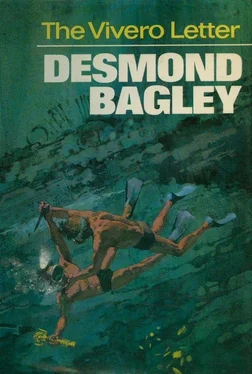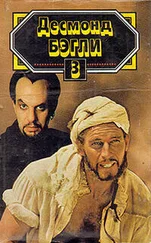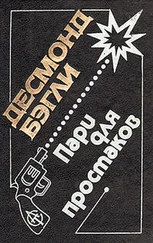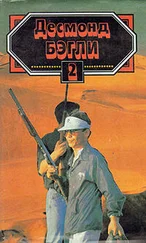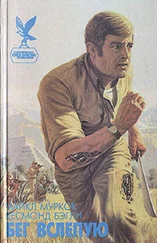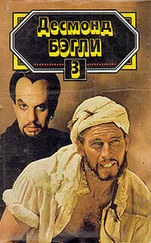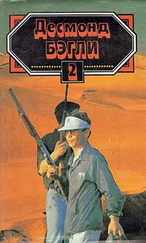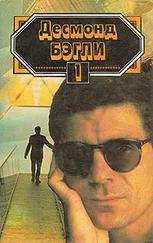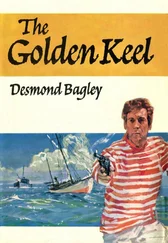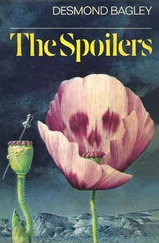Gatt jumped and took a swipe at me and I instinctively parried with a clash of steel, then jumped back six feet and felt the sweat start out on my chest beneath the rubber suit. I had used the wrong parry, forgetting the machete had no guard for the hand. Gatt had used a sideways slash and I had parried in seconde, catching his blade on mine. If I hadn’t jumped back his blade would have slid along mine and chopped my hand off — something that couldn’t happen with a sabre.
I feinted at him to gain time to think and to watch his reaction to an attack. He tried to parry clumsily, missed my blade, jumped back and nearly fell. But he was agile for his age, and recovered quickly, successfully parrying again. I gave ground, well satisfied with what I had learned. Gatt was definitely no fencer. As a young mafioso he may have been an adept with a knife, but a machete is more like a sword than an overgrown knife, and I had the advantage.
So here we were, fulfilling the hypothetical prophecy of Pat Harris — Gatt and I alone in Quintana Roo with Gatt separated from his bodyguards. I was determined to make it as quick and as short as possible; I was going to kill Gatt as soon as I could. I didn’t forget, however, that he was still highly dangerous, and advanced on him with due caution.
He had the sense to manoeuvre sideways so he would not have the wreckage of the hut behind him. That suited me because he could not retreat very far without coming to the edge of the cenote . He was sweating and breathing heavily, standing square on with his feet apart. He moved again, fast, and chopped down in a swing that would have cleaved my skull had it connected. I parried in quinte and stood my ground, which he didn’t expect. For a split second he was very close and his eyes widened in fear as I released his blade and cut at his flank. It was only by a monstrous leap backwards that he avoided it, and the point of my machete ripped his shirt away.
I took advantage and pressed home the attack and he gave way slowly, his eyes looking apprehensively at my blade which is the wrong thing to watch — he ought to have been looking at my sword hand. In desperation he attacked again and I parried, but my foot slipped on a branch which rolled under the instep and I staggered sideways. I lost contact with his blade and it sliced downwards into my side in a shallow cut.
But I recovered and engaged his blade again and drove him back with a series of feints. He parried frantically, waving the machete from side to side. I gave ground then and put my hand to my side as though tiring and he momentarily dropped his guard in relief. Then I went in for the kill — a fleche and a lunge in the high line; he parried and I deceived his parry and chopped at his head.
The edge of the machete hit the side of his head just below the ear and I instinctively drew it back into a cut as I had been taught, and the blade sliced deep into his neck. He was dead before he knew it because I had damn near cut his head off. He twisted as he fell and rolled to the edge of the cenote , then slowly toppled over to fall with a thump on the wooden dock.
I didn’t bother to look at him. I just staggered to the nearest support, which was a fallen tree, and leaned on the trunk. Then I vomited and nearly brought my heart up.
I must have passed out for a while because the next thing I knew was that I was lying on the ground, staring sideways at a column of industrious ants that looked as big as elephants from that angle. I picked myself up wearily and sat on the trunk of the tree. There was something nagging at the back of my head — something I had to do. My head ached abominably and little pointless thoughts chattered about like bats in an attic.
Oh, yes; that’s what I had to do. I had to make sure that Jack Edgecombe didn’t make a balls-up of the farm; he wasn’t too enthusiastic in the first place and a man like that could make an awful mess of all the Mayan rains. There was that pillar I’d found right next to the oak tree great-grand-father had planted — Old Cross-eyes I’d called him, and Fallon had been very pleased, but I mustn’t let Jack Edgecombe near him. Never mind, old Mr. Mount would see to everything — he’d get a farm agent in to see to the excavation of the Temple of Yum Chac .
I put my hands to my eyes and wiped away the tears. Why the devil was I crying? There was nothing to cry about. I would go home now and Madge Edgecombe would make me tea, with scones spread thick with Devonshire cream and homemade strawberry jam. She’d use the Georgian silver set my mother had liked so much, and it would all be served on that big tray.
That big tray!
That brought it all back with a rush and my head nearly burst with the terror of it. I looked at my hand which was covered with drying blood and I wondered whose blood it was. I had killed a lot of men — I didn’t know how many — so whose blood was this?
There and then I made a vow. That I would go back to England, to the sheltered combes of Devon, and I would never leave Hay Tree Farm again. I would stick close to the land of my people, the land that Wheales had toiled over for generations, and never again would I be such a damned fool as to look for adventure. There would be adventure enough for me in raising fat cattle and sinking a pint in the Kingsbridge Inn, and if ever again anyone called me a grey little man I would laugh, agree that it was so, and say I wouldn’t have it otherwise.
My side hurt and I put my hand to it and it came away sticky with blood. When I looked down I saw that Gatt had cut a slice from my hide, chopping through the wet-suit as cleanly as a butcher with a cleaver. Bone showed — the bones of my ribs — and the pain was just beginning.
I suddenly thought of Katherine in the cave. Oh, God, I didn’t want to go into the cenote again! But a man can do anything he has to, particularly a grey little man. Gatt wasn’t a grey man — more like red in tooth and claw — but the grey men of the world are more than a match for the Gatts of this world — for one thing, there are more of them — and the grey men don’t like being pushed around.
I pulled my weary bones together, ready to go looking again for those compressor parts and brushed the back of my hand across my eyes to rid them of the trace of those tears of weakness. When I looked across the city of Uaxuanoc there were ghosts there, drifting about in the ruins and coming closer — indistinct white figures with rifles.
They came soft-footed and looked at me with hard eyes, attracting each other with faint shouts of triumph, until there were a dozen of them in a big semi-circle surrounding me — the chicleros of Quintana Roo.
Oh, God! I thought desperately. Is the killing never going to end? I bent down and groped for the machete, nestled the hilt in the palm of my hands, then rose creakingly to my feet. ‘Come on, you bastards!’ I whispered. ‘Come on! Let’s get it over with!’
They closed in slowly, with caution and an odd respect in their eyes. I lifted the machete and one man unslung his rifle and I heard the metallic noise as he slammed home a round into the breech. There was a great throbbing sound in my ears, my vision darkened, and I felt myself swaying. Through a dark mist I saw the circle of men waver, and some began to run, and they shouted loudly.
I looked up to see a cloud of locusts descending from the sky, and then I pitched forward and saw the ground coming up at me.
‘Wake up!’ said the voice distantly. ‘Wake up, Jemmy!’
I moved and felt pain. Someone, somewhere, was speaking crisp and fluent Spanish, then the voice said close to my ear, ‘Jemmy, are you okay?’ More distantly it said, ‘Someone bring a stretcher.’
Читать дальше
